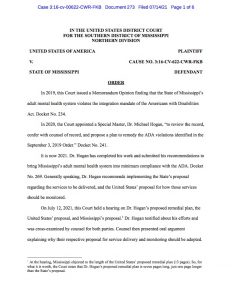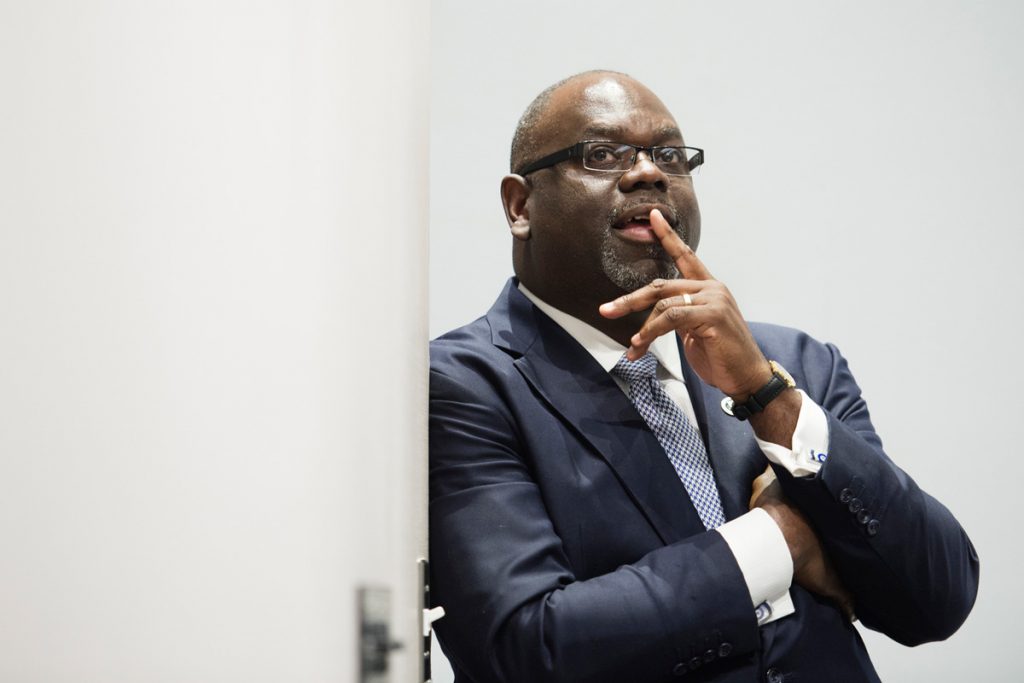U.S. District Judge Carlton Reeves submitted his ruling on the tumultuous lawsuit over Mississippi’s mental health-care system late last night, mandating the appointment of an external monitor to verify progress toward constitutional treatment of residents.

Special Master Dr. Michael Hogan, the expert arbitrator intended to parse the complex needs of the ailing system, struck a middle path between the state and federal plans presented at a July 12, 2021 hearing. Hogan accepted the state’s assertions that it had made significant strides in the years since the original 2011 complaint, and favored their interpretation that alternative measures for addressing crisis care in rural settings would prove suitable.
However, Hogan strongly concurred with the U.S. Department of Justice, representing the United States, on the need for an external monitor and review process to close the gap between hypothetical services and those actually available to Mississippi residents on the ground.
“On paper,” Hogan wrote, “Mississippi has a mental health system with an array of appropriate community-based services. In practice, however, the mental health system is hospital-centered and has major gaps in its community care.”
“In simple terms, Dr. Hogan’s remedial plan calls for all involved to ‘trust, but verify,’” Judge Reeves concluded. “The Court will adopt Dr. Hogan’s recommendations in full. He has put forward a careful and modest proposal for achieving minimum compliance with the ADA.”
That verification entails more than just a monitor in Reeves’ ruling. It will also include a clinical review that will directly investigate more than 100 patients every year to provide a snapshot of the system at large.
“The Court was pleased to see that Dr. Hogan’s proposed remedial plan contains a Clinical Review Process. The Process, a review of 100-200 patients a year, is designed ‘to assure that services are working as intended to address the needs of people with serious mental illness,’” Reeves wrote.
For all the extended debate over the shape and direction of Mississippi’s mental health-care system, Reeves’ ruling returned the question to the basic elements of constitutional rights established in the 1999 Olmstead decision: Institutionalization rips human beings out of their home communities, and authorities must avoid this action wherever possible.
“The poor performance of its mental health system, in its overinstitutionalization, is exactly what led it to violate the Americans with Disabilities Act. The remedy is to enforce the ADA by increasing the availability of community-based services,” Reeves found.
In his ruling, Reeves reflected on the long road from the first federal acknowledgement of Mississippi’s constitutional violations against its residents with mental illnesses to today.
“Ten years have passed since the United States issued its findings letter describing in detail how Mississippi’s mental health system was over-institutionalizing citizens. Five years have passed since the United States filed this lawsuit seeking to fix that problem,” the judge wrote. “Two years have passed since trial, where the United States proved the violations with evidence. It is now time for a Monitor to be appointed in line with the Special Master’s recommendations and testimony.”
But the story may not end with the quick, decisive agreement between Reeves and Hogan. As Attorney General Lynn Fitch explained to the Daily Journal in a rare media comment, the State may be willing to appeal Reeves’ decision to a higher court, a decision that would again delay a final conclusion to the decade-long ordeal.










